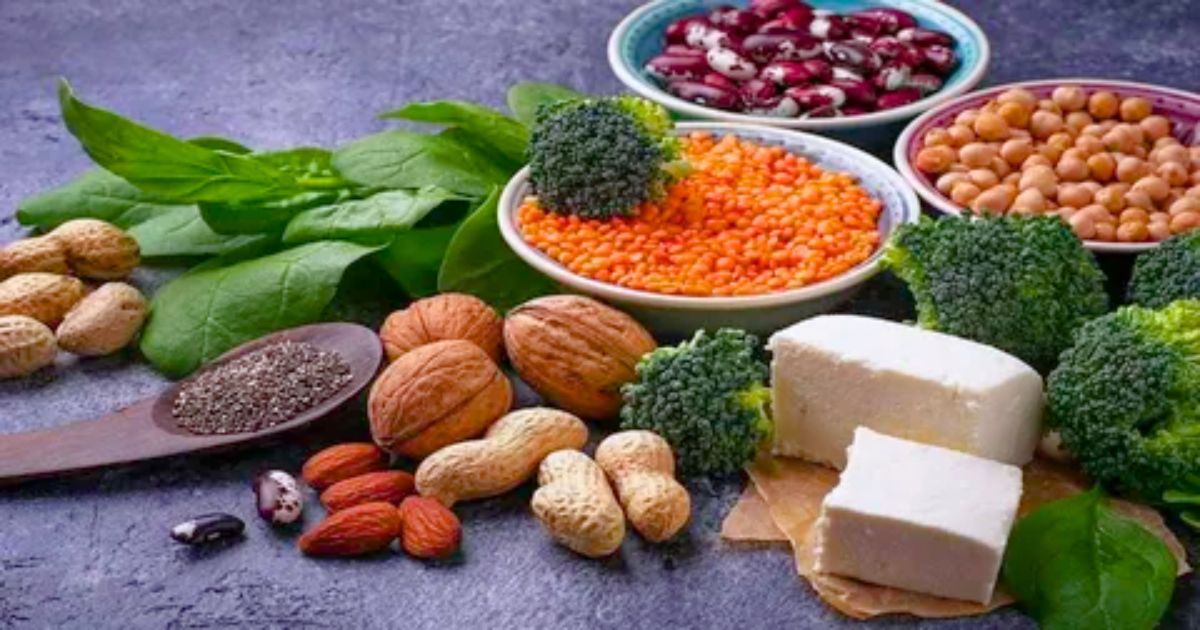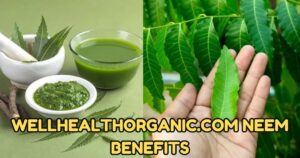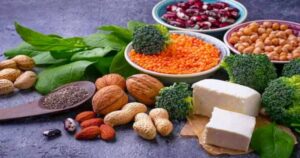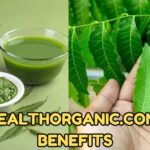The wellhealthorganic.com website offers a list of vegetarian protein sources. It provides an extensive array of options for those seeking plant-based protein alternatives. It includes legumes like lentils, chickpeas, and black beans which are not only delicious but also packed with protein. They offer versatile cooking possibilities from hearty stews to flavorful salads. Vegetarian foods are not only nutritious but also environmentally friendly choices.
It also features tofu and tempeh which are soy-based products rich in protein and perfect for adding to stir-fries or sandwiches. They cater to various dietary preferences and needs making it easier for individuals to maintain a balanced diet without relying on animal products. It presents nuts and seeds as another valuable protein source, such as almonds, chia seeds, and pumpkin seeds. They can be enjoyed as snacks, added to smoothies, or sprinkled over salads for an extra protein boost.
The website highlights the importance of including diverse protein sources in one’s diet to ensure adequate nutrition. It advocates for the benefits of plant-based proteins in supporting overall health and well-being. By offering detailed information and recipes it encourages people to explore and embrace vegetarian protein options. They strive to allow individuals to make informed dietary choices that align with their values and health goals.
How much protein can the Human need and what requirements?
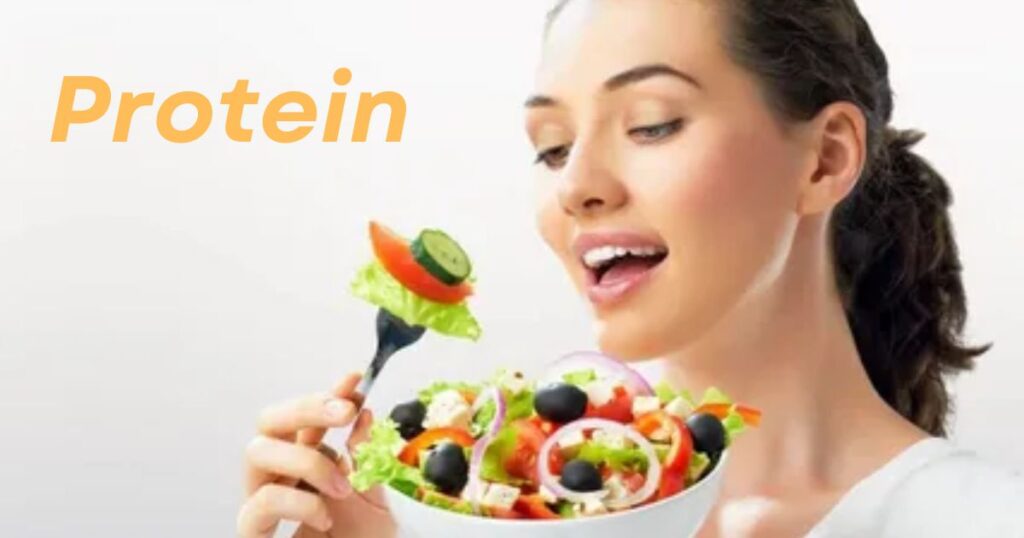
The amount of protein a person needs depends on various factors such as age, gender, weight, and activity level. The recommended dietary allowance (RDA) for protein is about 0.8 grams per kilogram of body weight for adults. It means that for an average adult they need around 46-56 grams of protein per day. However, it can vary for individuals. Athletes and those who are highly active might need more to support muscle repair and growth. It’s also important to distribute protein intake evenly throughout the day to optimize its utilization by the body.
They can get protein from various sources such as meat, fish, poultry, eggs, dairy products, legumes, nuts, and seeds. They contain different types of amino acids, which are the building blocks of protein. Eating a balanced diet with a mix of these foods can help ensure that a person gets all the protein and nutrients they need to stay healthy and strong. It’s advisable to choose lean protein sources to limit the intake of saturated fats. Also, you should consider the quality of protein by including a variety of sources in your diet to ensure you get all essential amino acids. Overall meeting protein requirements is vital for maintaining muscle mass supporting immune function and promoting overall health.
| Protein Requirements for Humans | Daily Protein Intake (grams) | Benefits |
|---|---|---|
| Sedentary Adults | 0.8 grams per kilogram | Maintain basic bodily functions. – Repair and maintain tissues. – Support immune function. |
| Active Adults (Moderate Exercise) | 1.0-1.2 grams per kilogram | Support muscle growth and repair. – Provide energy for physical activity. |
| Athletes and Bodybuilders | 1.2-2.0 grams per kilogram | Support muscle recovery and growth. – Meet increased energy needs due to intense training. |
| Pregnant Women | 1.1-1.3 grams per kilogram | Support fetal growth and development. – Maintain maternal tissue and prepare for lactation. |
| Lactating Women | 1.3 grams per kilogram | Provide protein-rich breast milk for the baby’s growth and development. – Support maternal tissue maintenance. |
Understanding Vegetarian Protein
An understanding of vegetarian protein is essential for those choosing plant-based diets. They include beans, lentils, tofu, and nuts. These options provide necessary nutrients for body function. It’s important to know that not all proteins are complete on their own. They may lack certain amino acids but combining different sources can create a complete protein. The variety of options ensures a balanced diet. It’s beneficial to explore different recipes and cooking methods to enjoy these foods. They offer numerous health benefits including lower risk of heart disease and improved digestion. Understanding vegetarian protein also involves knowing portion sizes.
It’s crucial to consume an adequate amount of energy and muscle repair. They can be incorporated into meals in creative ways, such as salads, stir-fries, and smoothies. It’s advisable to consult with a nutritionist to ensure meeting dietary needs. They can provide personalized guidance based on individual requirements. They can also help in discovering new flavors and textures. You can enjoy delicious meals while meeting their nutritional needs without relying on animal products. It promotes environmental sustainability by reducing the carbon footprint associated with meat consumption. They play a crucial role in promoting animal welfare by reducing the demand for animal products.
High-Protein Vegetarian Foods
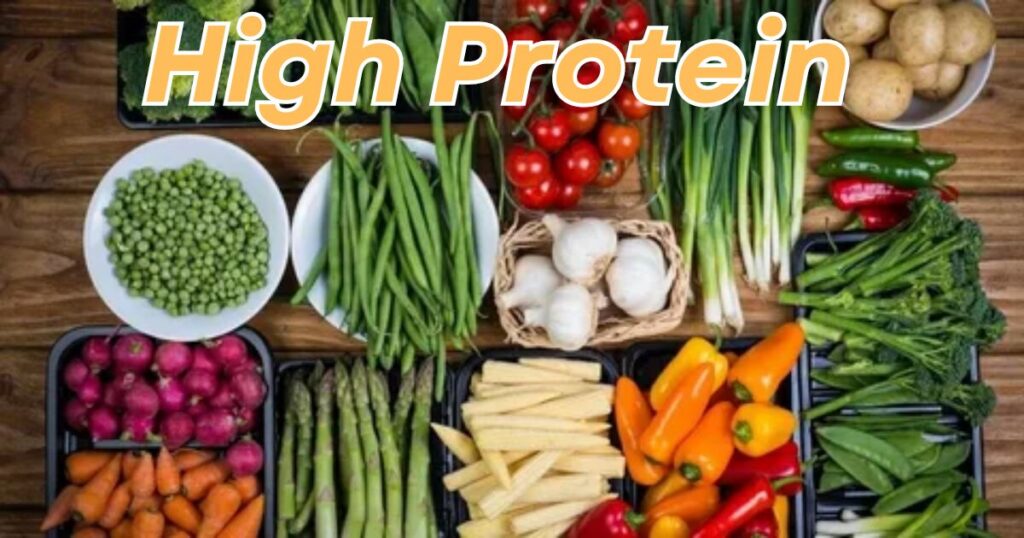
The High-Protein Vegetarian Foods are a boon for those seeking plant-based protein sources. They provide essential nutrients for muscle growth and repair. It includes legumes like lentils, chickpeas, and black beans, known for their rich protein content. It also encompasses tofu, tempeh, and edamame, which are versatile and tasty protein options. They offer a variety of flavors and textures to suit different tastes and preferences. Including them in meals can enhance overall nutrition and promote satiety. Vegetarians can meet their protein needs without relying on meat with these options. They are not only nutritious but also environmentally friendly choices.
Nuts: These are the best food for maintaining good health and the amount of protein for every 100 grams, but there are also a lot of calories from fat. They are a great snack food to take around, or you can mix in nut butter like peanut butter with something like a smoothie.
Legumes: The most balanced vegan protein source in terms of protein and calorie density. Dry beans are far cheaper and anyone can purchase them easily, and most vegans consider them to be a must-have. Their high fiber and water content causes them to rank not well on the lists above. Soy-based products, such as tempeh, tofu, and soy milk, are the best bean products that provide protein.
Beans: Each kind of bean can provide 6 to 9 grams of protein and 6 to 8 grams of fiber to help you feel full in just half a cup. Beans may also support good gut flora and reduce cholesterol.
Grains: You probably think of grains as primarily carbohydrates, but they also pack a protein punch. For example, for your morning meals, half a cup of oats offers five grams of protein, while a quarter cup of fresh barley or grain adds five to six grams. Teff, millet, amaranth, and other ancient grains are also great options to mix up your meals.
Green peas: Green peas are like many people to many other healthy nutrients like fiber, vitamin K, and vitamin A, green peas also contain carbohydrates and protein while they get a bad rapping, peas are a fantastic source of protein: Cooked peas contain eight grams per cup.
Plant-based eats: Plants can be provided Dairy milk and pea milk, a substitute for milk, contains almost as much protein as cow’s milk. Find varieties that are such as casually flavored or without sugar.
Vegetables: They’re not the most abundant sources of protein, but if you’re eating a diet heavy on vegetables, you’ll get a decent amount of protein from them. For example, a cup of cooked Brussels sprouts contributes 4 grams of protein to your meal. these ingredients can be used Five grams make up a cup of sweet yellow maize Low in calories but high in protein per calorie are leafy greens such as spinach, and watercress.
Meat substitutes: For any meat lovers, faux meat products can ease the switch to a plant-based diet, but not all of them are good for you. Choose items with few ingredients, lots of protein, and a healthy amount of sodium and saturated fats.
Eggs or egg whites: The egg is the best part of the protein and they are the cheapest cost they can purchase easily and nutritious source of proteins. Each egg provides 6 to 8 grams. If you eat white eggs, you are not getting as many calories, but you won’t get the B vitamins, omega-3 fatty acids, and vitamin D that are contained in the yolk.
Dairy products: Dairy Products are the best source of the product. These are the making in many things like butter, milk, cheese, and curd, these are excellent sources of protein and calcium. To get the most protein in dairy products can be manipulated by plain Greek yogurt. Every serving of these contains dairy products at least 13 grams of protein, and they can be attired up for a hearty breakfast or snack by including fruit, nuts, or granola.
Seed: Like nuts, seeds are a great source of protein and unsaturated fats. These are the Select pumpkin seeds, which have 7 grams of protein per ounce, and sunflower seeds, which have 8 grams each ounce, as a snack. You can also sprinkle hemp seeds, which have about 10 grams per ounce, on your morning oatmeal or toast.
Peanuts: Peanuts have 25.8 grams of protein per 100 grams. Peanuts are the best foods for vegan bodybuilders and these do not technically work Peanut butter can be performed easier to add to a variety of other foods, and peanuts themselves taste delicious.
Almonds: Almonds contain 21.1 grams of protein per 100 grams, and almond milk also contains quite a bit. The biggest downside of using nuts as a protein source is that they contain a lot of calories and omega-6 fats. They should generally limit how much eat almonds and the ratio can eat on the omega 3 to 6 fat ratio of nuts for more data.
Flaxseed: Rounding out our elite 8 is flaxseed with 18.3 grams of protein per 100 grams. Similar to seeds like flax, flax is one of the best vegan sources of omega-3 fats and an excellent source of many vitamins and minerals. The majority of people should eat as much tasty food as they can. Add it to salads, smoothies, oatmeal, and even baked items as a “vegan egg.”
Pumpkin Seeds: Pumpkin seeds have 18.5 grams of protein per 100 grams and the seeds are beneficial in health these can be not only good sources of protein but minerals like magnesium, zinc, and copper as well as are good for health. Similar to nuts, the omega 3 to 6 fat ratio of seeds (avoid sunflower seeds in particular) isn’t always great.
The Power of Vegetarian Proteins
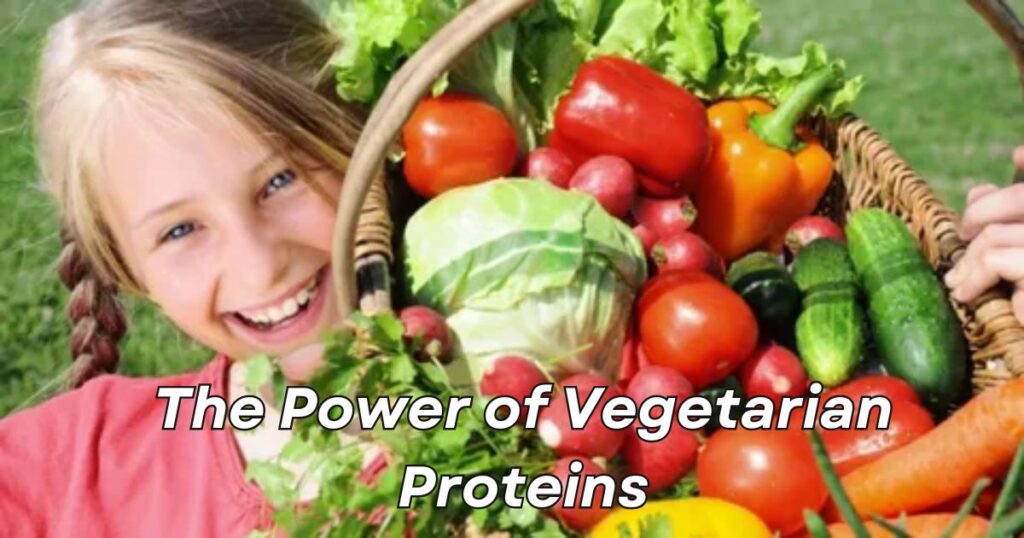
The power of vegetarian proteins is undeniable. They offer a plethora of health benefits, from aiding in weight management to reducing the risk of chronic diseases. They are packed with essential nutrients like fiber, vitamins, and minerals, promoting overall well-being. They can be found in various plant-based sources such as beans, lentils, tofu, and quinoa. It’s charming how they can provide ample protein without the saturated fat and cholesterol found in animal products. They are versatile allowing for endless culinary creations whether it’s a hearty lentil soup or a flavorful tofu stir-fry.
They contribute to sustainable living as their production requires fewer resources and produces fewer greenhouse gas emissions compared to animal agriculture. It’s remarkable how they can cater to diverse dietary preferences and restrictions, making them inclusive for all. It’s remarkable how they can help in maintaining blood sugar levels and reducing the risk of diabetes. They are a symbol of compassion towards animals, as their consumption does not involve harm or exploitation. It’s allowing to know that by choosing vegetarian proteins we can positively impact our health, the environment, and animal welfare.
Also Read This Blog : Thespark shop boy & girl clothes online
Vegetarian Protein Ideas
The world of vegetarian protein ideas is vast and exciting. The options are diverse, offering delicious and nutritious alternatives for those seeking plant-based protein sources. The chickpea, with its versatility and protein punch, stands out as a favorite. It can be roasted for a crunchy snack or blended into creamy hummus. Lentils, rich in protein and fiber, are another fantastic choice. They make hearty soups, flavorful salads, and satisfying veggie burgers.
Tofu, often dubbed as a blank canvas, is incredibly versatile. It can be marinated, grilled, stir-fried, or even blended into smoothies for a protein boost. Quinoa, a complete protein grain, offers a nutty flavor and a satisfying texture. It’s perfect for salads, bowls, or even as a breakfast porridge. Nuts and seeds, such as almonds, walnuts, chia seeds, and hemp seeds are nutritional powerhouses. They can be sprinkled on salads, blended into smoothies or enjoyed as a crunchy snack. With these vegetarian protein options, it’s easy to create delicious and balanced meals while nourishing the body.
Cheap Vegetarian Protein Sources
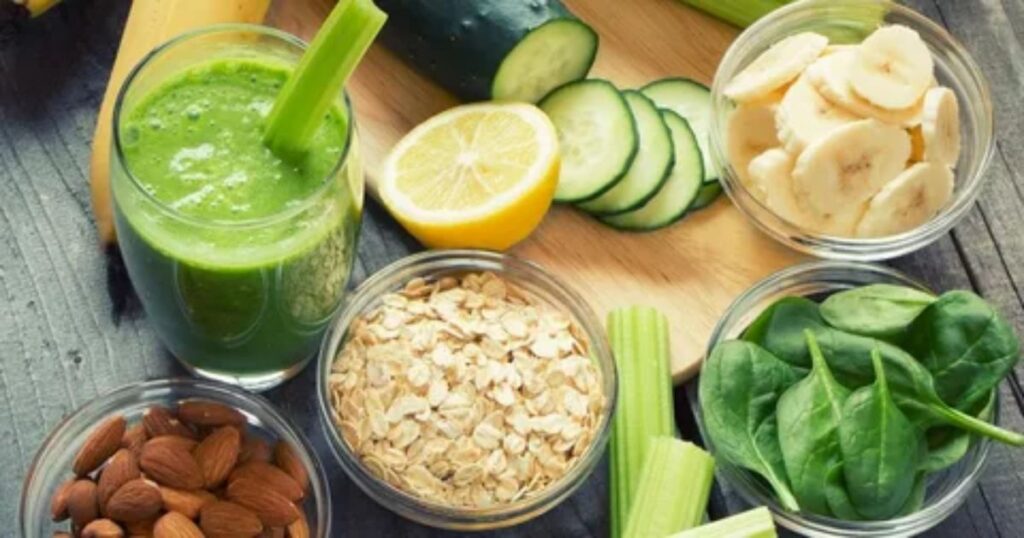
The search for cheap vegetarian protein sources is a common quest among health-conscious individuals. The variety of options available makes it easier than ever to meet protein needs without breaking the bank. The list of affordable plant-based proteins is extensive, catering to various tastes and preferences. Lentils, for example, are not only inexpensive but also versatile, making them a staple in many diets. They can be cooked in various ways and added to soups, salads, or stews. Similarly, beans offer a budget-friendly protein source, whether canned or dried.
They provide a hearty addition to meals and are rich in fiber, aiding digestion. Tofu, made from soybeans is another economical option that packs a protein punch. Its neutral taste allows it to absorb flavors easily, making it adaptable to different cuisines. Nuts and seeds are also affordable sources of protein, offering a convenient and nutritious snack option. Incorporating these inexpensive vegetarian protein sources into your diet can help you maintain a balanced and budget-friendly approach to eating healthy.
- The most affordable vegetarian protein sources are legumes like beans, lentils, and chickpeas.
- It’s easy to incorporate these into meals by adding them to salads, soups, or making bean-based burgers.
- They are rich in protein, fiber, and various vitamins and minerals.
- It’s also cheap to buy tofu and tempeh, which are made from soybeans and are versatile in cooking.
- They can be marinated, grilled, or stir-fried for a tasty and protein-packed meal.
- It’s cost-effective to include eggs in your diet as they are a complete source of protein and can be prepared in numerous ways.
- They provide essential amino acids needed for muscle growth and repair.
- It’s budget-friendly to include dairy products like Greek yogurt and cottage cheese in your diet for their high protein content.
- They can be eaten on their own or added to smoothies, salads, or used as toppings for dishes.
- It’s economical to include nuts and seeds like almonds, peanuts, and chia seeds in your diet as they are nutritious and provide a good amount of protein and healthy fats.
Which Dal is High in Protein?
The debate about which dal is high in protein is a common one. The truth is, all dals are good sources of protein, but some have slightly higher levels than others. The most popular dals include lentils, chickpeas, and split peas. Among these lentils stand out as a protein powerhouse. They are rich in essential amino acids making them a complete protein source. Split peas also rank high in protein content. They contain about 16 grams of protein per cooked cup. Chickpeas commonly known as garbanzo beans, are another excellent choice. They offer around 15 grams of protein per cooked cup.
If you’re looking to boost your protein intake including these dals into your diet can be beneficial. Black grams, or urad dal are particularly rich in protein and are commonly used in South Asian cuisine. They are a staple ingredient in dishes like dal makhani. Including these dals in your diet can help fulfill your protein requirements. Experimenting with different dals can also add variety to your meals while ensuring you get the protein your body needs to stay healthy and strong. Dals are not only rich in protein but also provide essential nutrients like fiber, vitamins, and minerals. So, next time you’re planning a meal consider including dals for a nutritious protein punch.
Frequently Asked Questions
What are some common vegetarian protein sources?
Common vegetarian protein sources include beans, lentils, tofu, tempeh, quinoa, nuts, seeds, and dairy products like yogurt and cheese.
Can vegetarians get enough protein without eating meat?
Yes, vegetarians can easily meet their protein needs by consuming a variety of plant-based foods rich in protein, such as legumes, grains, nuts, and seeds.
Are plant-based proteins as complete as animal proteins?
While most plant-based proteins may lack one or more essential amino acids, combining different plant protein sources throughout the day can provide all essential amino acids and create complete protein meals.
Can athletes meet their protein needs on a vegetarian diet?
Athletes can obtain adequate protein from plant-based sources like beans, lentils, and soy products, as well as through supplementation with protein powders made from pea, rice, or hemp protein.
What are some tips for maximizing protein intake on a vegetarian diet?
Including a variety of protein-rich foods in meals, such as beans, tofu, and quinoa, and including protein-rich snacks like nuts and Greek yogurt, can help meet daily protein requirements.
Conclusion
The variety of wellhealthorganic.com vegetarian protein ideas and sources offers a rich tapestry of options for those seeking plant-based nutrition. It showcases a diverse array of delicious and nutritious alternatives to animal-based proteins. The range of options ensures that individuals can meet their protein needs while enjoying a variety of flavors and textures. It highlights the versatility of vegetarian protein representing that it can be combined into a wide range of dishes, from savory to sweet. They provide a sustainable and ethical choice for those concerned about the environmental and ethical impact of animal agriculture. It allows people to make conscious dietary choices that align with their values and health goals.
It underscores the importance of balanced nutrition, showing that a well-rounded diet can be achieved without relying on meat or dairy products. They promote a holistic approach to health, emphasizing the benefits of including more plant-based foods into one’s diet. It celebrates the abundance of plant-based protein sources available from legumes and grains to nuts and seeds. They offer a wealth of nutrients including fiber, vitamins, and minerals, contributing to overall health and well-being. They represent a delicious and satisfying way to nourish the body and support a healthy lifestyle, proving that vegetarian protein can be both nutritious and delicious.

Hello I’m Jack Wilson An Experienced Author I’m Writing About DOGS and TRENDING TOPICS with a simplicity that Relates with readers. My writing style carries Easy wording with Natural touch which makes My writing Engaging and Easy to Read.
